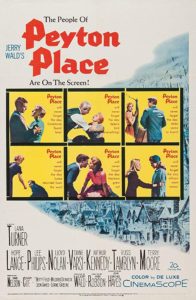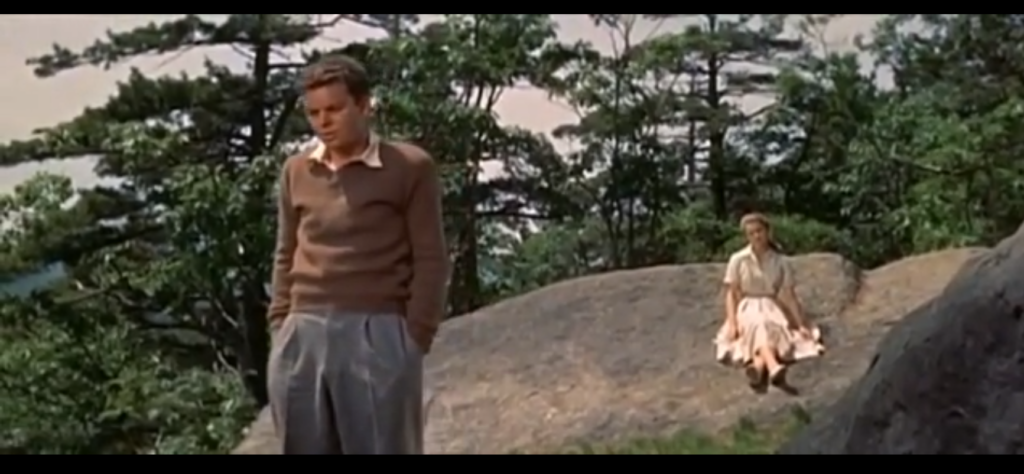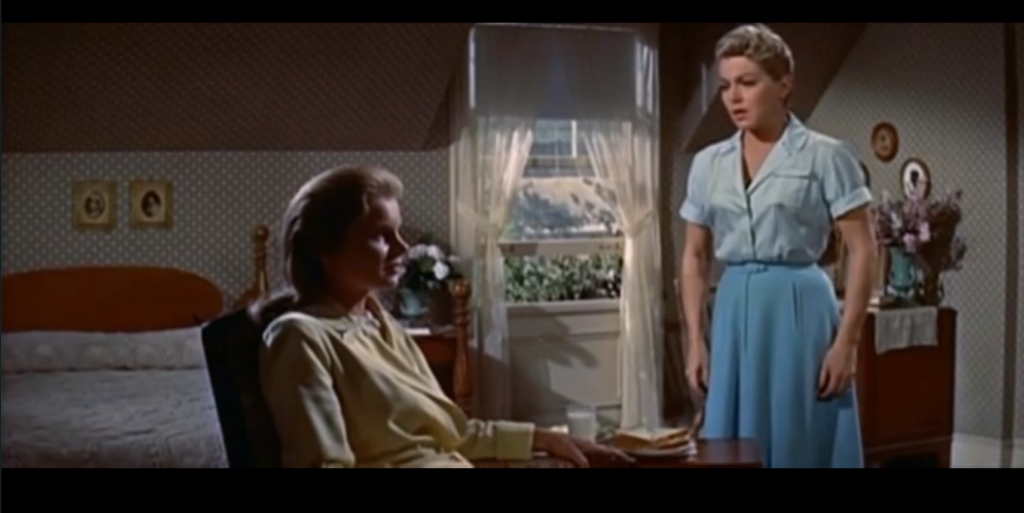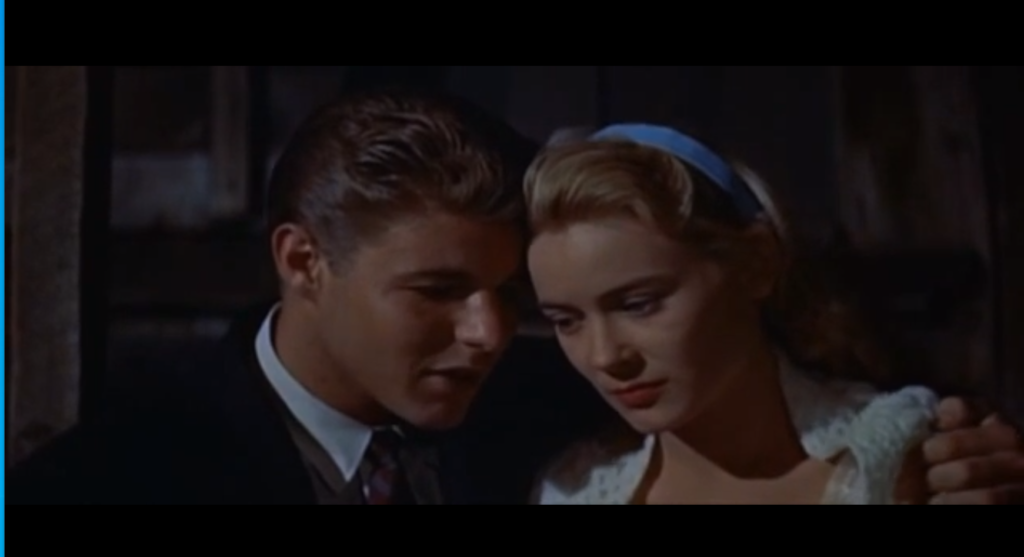“It’s about time you learned that girls want to do the same things as boys.”
|

Synopsis:
When a new high school principal (Michael Rossi) arrives in the New England town of Peyton Place, he quickly expresses romantic interest in a local widow (Lana Turner) whose daughter (Diane Varsi) is dating a shy, mother-dominated boy (Russ Tamblyn). Meanwhile, Varsi’s best friend (Hope Lange) — whose mother (Betty Field) works as Turner’s housemaid — endures abuse at the hands of her alcoholic stepfather (Arthur Kennedy), and the local “loose girl” (Terry Moore) dates the son (Barry Coe) of a wealthy conservative (Leon Ames) who disapproves of his son’s relationship.
|
|
Genres, Themes, Actors, and Directors:
- Arthur Kennedy Films
- Betty Field Films
- Hope Lange Films
- Lana Turner Films
- Mark Robson Films
- Mildred Dunnock Films
- Morality Police
- Rape
- Russ Tamblyn Films
- Sexual Repression
- Single Mothers
- Small Town America
- Teenagers
- Terry Moore Films
Review:
Mark Robson’s adaptation of Grace Metalious’s best-selling novel (loosely based on stories from her hometown) managed to avoid the scandalous soaper’s most controversial topics (i.e., abortion) while maintaining plenty of lurid subplots. Lange’s sensitive character (she gives a fine performance) and hideous home life are the easiest to sympathize with; however, the remaining ensemble narrative is simply filled with torrid melodrama focused on sexual repression, class snobbery, and parental dysfunction. Oscar-nominated Turner is as earnest and stoic as ever (you’d never know her personal traumas at the time rivaled those on screen), but it’s challenging to feel much engagement around her rebuff of her would-be suitor (Rossi), whose distinguished gray hair looks painted on and whose squeaky, high-pitched voice is a surprise each time one hears it. The best thing about the film is its gorgeous Cinemascope cinematography, much of it shot on location in New England. Listed as a Sleeper in the back of Peary’s book, though I’m not quite sure why.
Redeeming Qualities and Moments:
- Beautiful Cinemascope cinematography


- Hope Lange as Selena

Must See?
No, though it’s worth a look for its historical importance and erstwhile popularity.
Links:
|
One thought on “Peyton Place (1957)”
Not must-see.
The film generally has a lackluster quality that seems to linger throughout. No doubt that’s largely due to it being a whitewash of the novel. I recall reading it and its sequel ‘Return to Peyton Place’ together in one volume. Metalious reportedly hated this film version and it’s easy to see why. It’s also easy to understand that a whitewash was necessary since Hollywood was suffering the last gasps of the Hays code. The code did the movie no favors.
The sequel (which Peary overlooks) is actually a better film – though by that I mean it’s better as a guilty pleasure, what with Mary Astor using one of her high-charged performances (as PP’s resident rich bitch) to run away with it. Even if it isn’t all that good a film (*that* novel was hastily written as a cash-in and it shows), it’s still a treat having Eleanor Parker, Jeff Chandler, Astor, Carol Lynley and Tuesday Weld in the same cast!